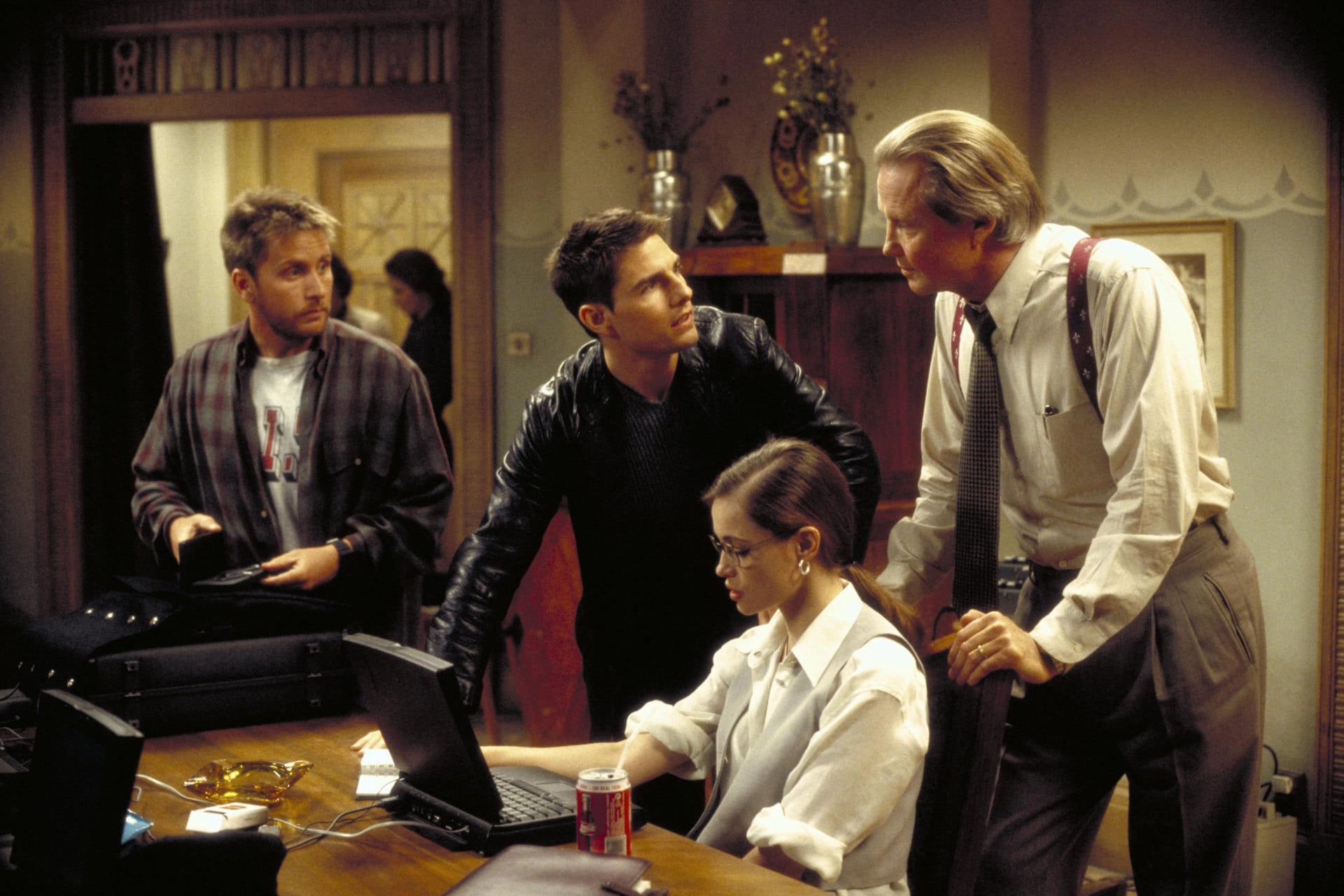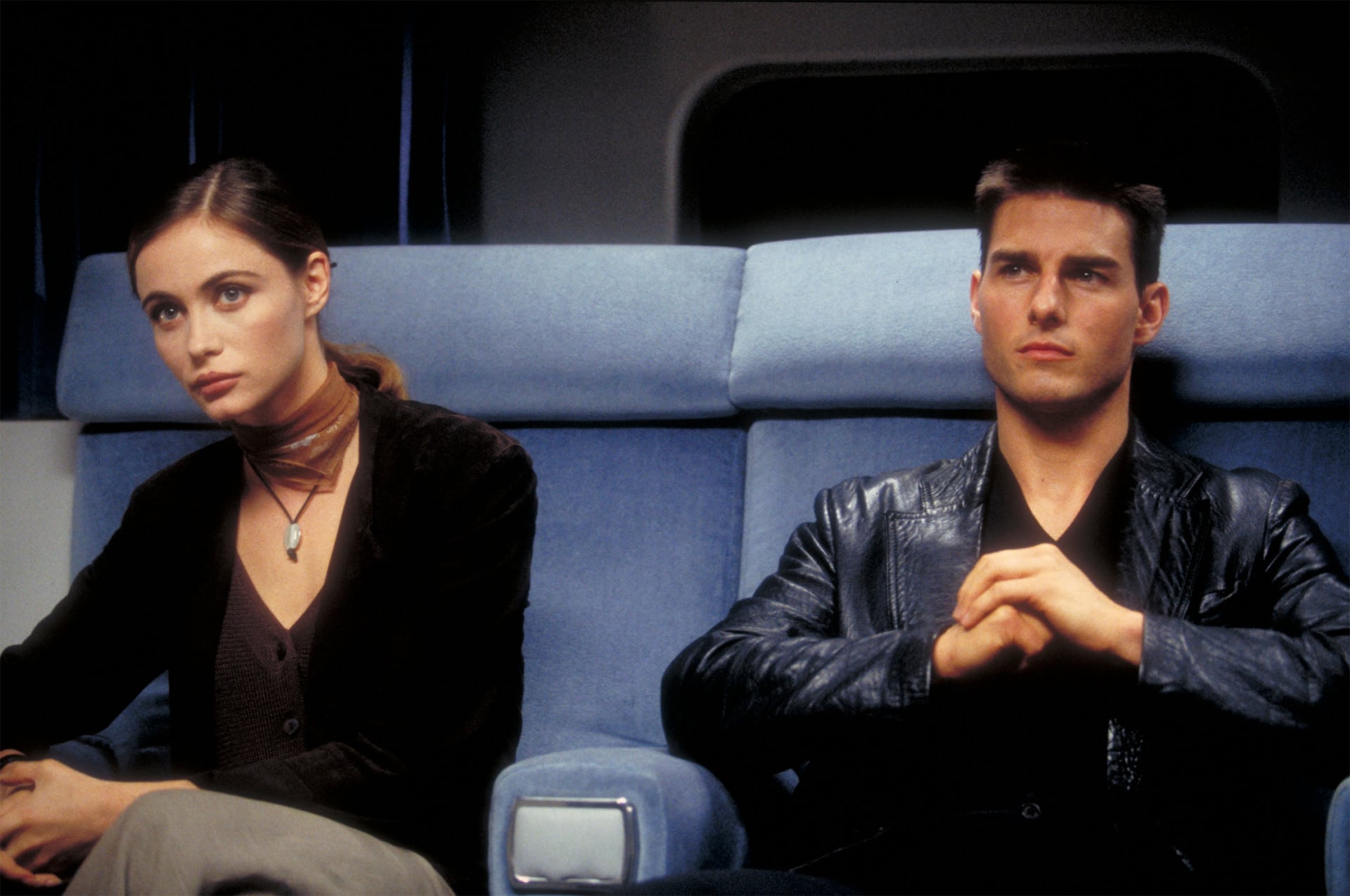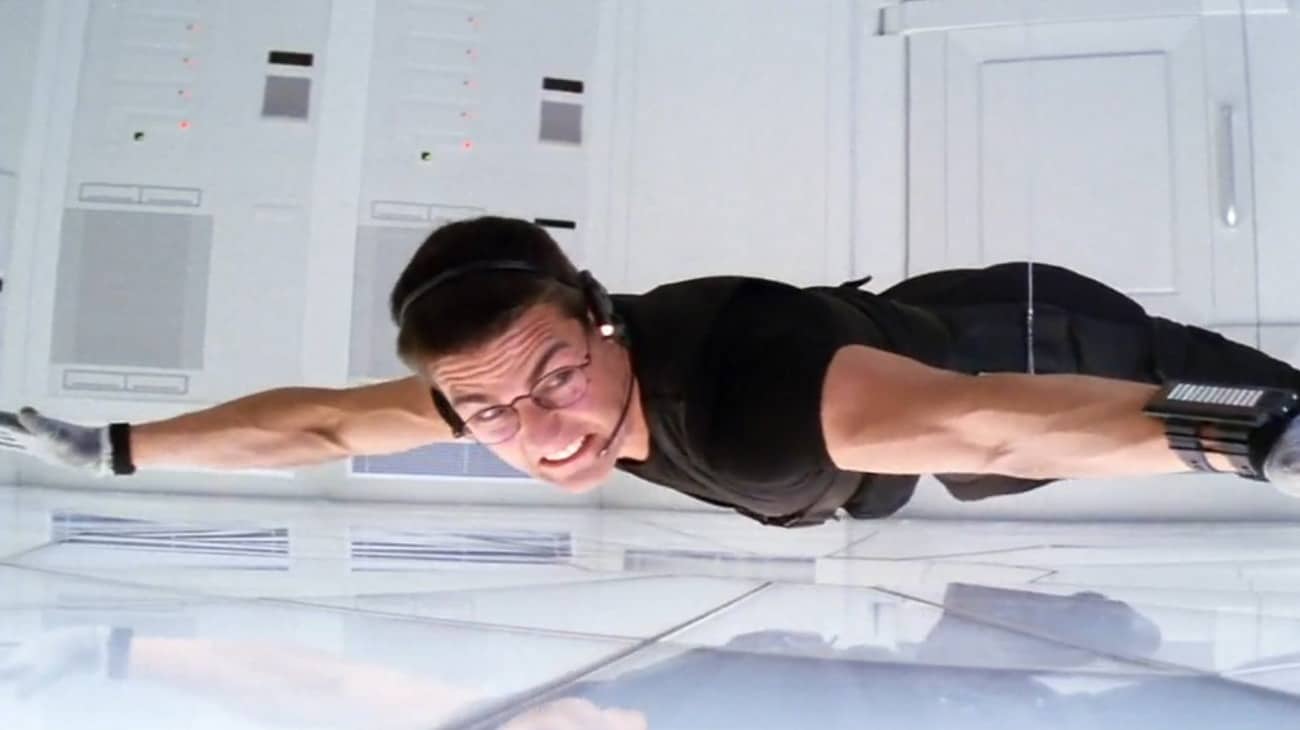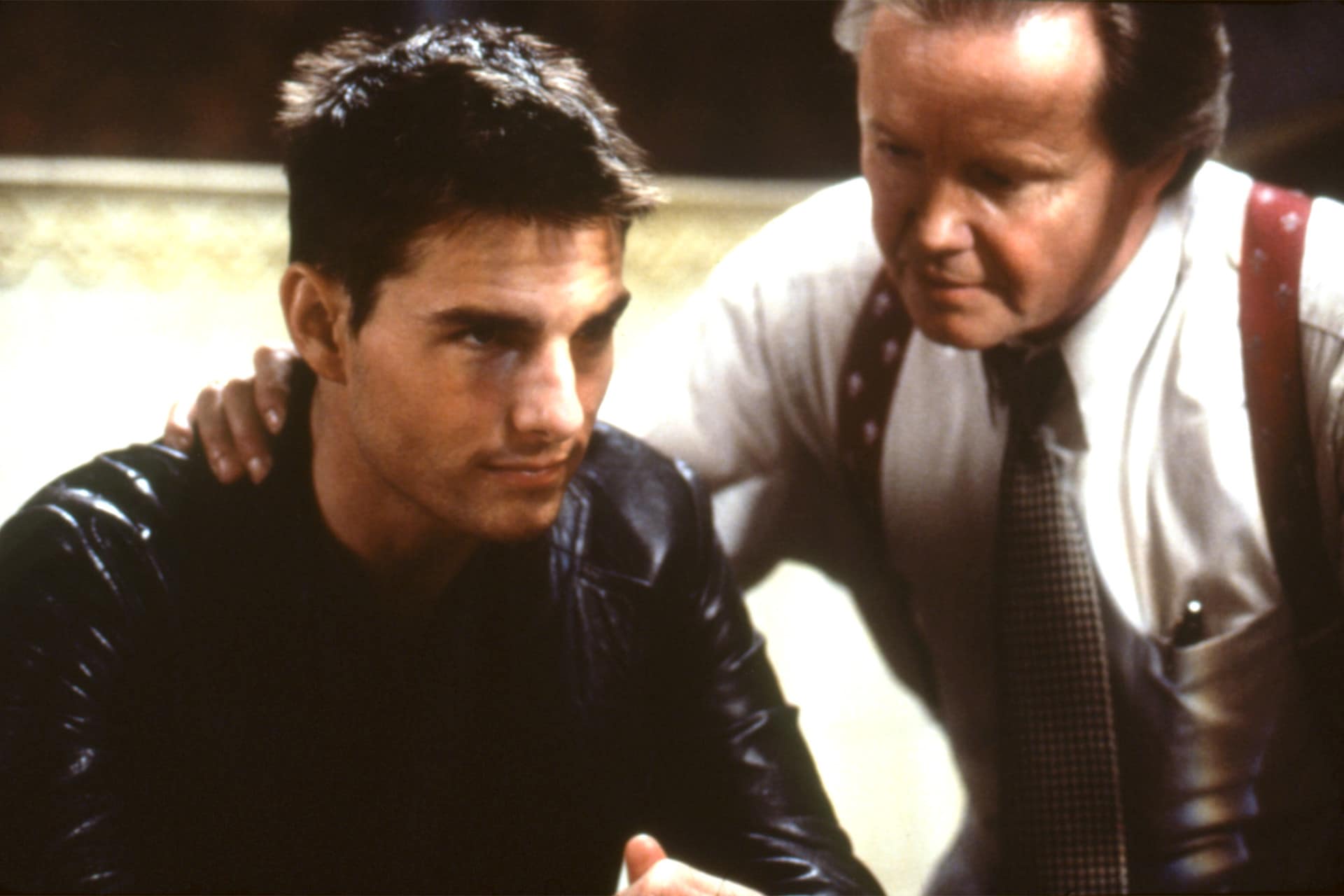Mission: Impossible Is 25 Years Old: Its Big Twist Would Cause Outrage Today
The first flic in the Mission: Insufferable franchise was released 25 years past this May.
Brian De Palma's Mission: Unacceptable is a fascinating cultural artifact, particularly when examined direct the lens of the quarter-century of nonclassical culture that has followed. Military mission: Insufferable was, of course, an adaptation of the classic television series, which ran for seven seasons on CBS from 1966 through to 1973. Nevertheless, it was a bold franchise reboot, relaunching an present property in a thrilling and provocative way that would never be tolerated now.
Naturally, the term "reboot" had non entered the democratic consciousness by May 1996. The low gear recorded use of the password to refer to the relaunch of an existing intellectual property was on Usenet in June 1994. By the time Christopher Nolan rebooted Warner Bros.' Batman franchise with Batman Begins in 2005, the condition was still new enough that author David S. Goyer was explaining its context of use to The Los Angeles Times and Nolan was victimisation the term "restart" in interviews with The Guardian.
The continuity between the films and the TV show is ambiguous at best. Reportedly, the production team originally predetermined to take up the original cast from the original television show make a cameo appearance at first of the movie, only to die in the opening mission. Original star Martin Landau complained, "They wanted the smooth team to be destroyed, done away with one and only at a time, and I was against that."
The finished film would retain a similar opening. An full IMF team is brutally murdered when an assigning goes wrong. Ethan Hunt (Tom Cruise) initially appears to be the sole survivor of a mission that leaves Jim Phelps (Jon Voight), Sarah Davies (Kristin Scott Doubting Thomas), Jack Harmon (Emilio Estevez), and Claire Phelps (Emmanuelle Béart) dead. With the original cast refusing to return for such a brutal cameo, Deputation: Out of the question relies happening the star power of the victims to catch the audience off his guard.

However, scorn recognizable faces like Thomas and Estevez, the team at the start of Mission: Impossible is composed almost entirely of New characters. Ethan James Henry Leigh Hunt, Sarah Davies, Jack Harmon, and Claire Phelps are all new creations without whatever ties to the preceding Mission: Impossible brand. It a great deal feels like a tabula rasa and a clean break from what came before, with one leading light exception.
The only established character therein initial roster is the team leader Jim Phelps. Phelps was a fixture of the Missionary station: Impossible universe. Saint Peter the Apostle Graves had played the character in both the seminal 1966 series and the 1988 revival. To it point, the character of Jim Phelps had appeared in every season of all Mission: Impossible series with notable exclusion of the very first. Phelps was a brand ambassador, particularly as played by Graves.
Graves had attained an Emmy nomination and won a Golden Globe for his work along the evince. The classic "Your military mission, should you choose to accept it…" briefing was manageable to Phelps, with the fate of the planetary entrusted to the character. Graves himself described the eccentric every bit "the impervious genius." While Graves never quite accrued the same toss off cultural cachet of his co-stars like Martin Landau or Leonard Nimoy, Phelps was an essential part of the Missionary post: Insurmountable mythos.
Information technology is ne'er made entirely clear whether the Jim Phelps from De Palma's Mission: Unthinkable is meant to be the same Jim Phelps who served as an anchorman to the enfranchisement crossways its prior incarnations. Jon Voight was 12 days younger than Peter Graves, and there was no indicant in either of the two preceding television system shows that Jim Phelps had been married. Nevertheless, the character served as the primary tether between the beloved video serial publication and the smash hit version.

As such, De Palma's Mission: Impracticable set about to Jim Phelps is very engrossing. Over the course of instruction of the motion picture, Hunt discovers that there were survivors of the opening mission. Hunt meets with Claire at a innocuous house, and the pair attempt to discover World Health Organization betrayed the team. Later, Jim Phelps reveals that he also survived the hit. However, this is to a fault good to be true. Hunt discovers that Phelps double-crossed the team in an undertake to steal the CIA non-official get across list to sell it along the unclean grocery store.
This was a bold choice. It was debatable even in May 1996, with many members of the classic Mission: Impossible cast and crowd voicing their outrage over how the lineament had been treated. Greg Morris, who had played tech good Barney Collier on the pilot series, told CNN that he walked out of his screening of the take. When asked to clarify his opinion on the photographic film, Morris stated bluntly, "It's an abomination."
Graves confessed, "I was never asked if I wanted to play Phelps in this motion-picture show. Jon Voight got the role. Just from what I hear he turns outgoing to be the bad cat. … So, level if they had approached me I real much doubt that I would have desirable to be involved." He later elaborated, "I certainly objected to Jon Voight playing a character onymous Phelps who turns out to be the rat and the stag and the killer who destroys his complete team of people — and he himself is killed in that film. I didn't like that a lot."
It seems risk-free to suggest that no more modern franchise reboot would dare approach its material in a similar path nowadays. After all, one pauperism only consider the outspoken online responses to portrayals of characters like Luke Skywalker (Mark Hamill) in The Last Jedi and Superman (Henry Cavill) in Adult male of Nerve because they deviated from certain fans' crystalized ideas of what those characters are Beaver State could be. The internet would explode if Mission: Impossible made Jim Phelps a villain today.

Indeed, there is some backlash present in contemporary discussions of Mission: Impossible, with some fans describing the film as "the most offensive adaptation of (all time)." Mission: Impossible III theater director J.J. Abrams, arguably one of the leading lights of this moderne wave of nostalgia-driven cinema, suggested that Graves play Phelps in the quartern Mission: Impossible and so retcon the controversial characterization, "I nigh feel like you could build him serious again and bring him back."
Of course, this ignores the fact that Phelps' betrayal was essential to the narrative and themes of Mission: Impossible. Information technology underscored the film's dread and anxiety, on with the film's function American Samoa an quer of the American combatant-industrial complex in the wake of the Cold War. The original Mission: Impossible show was a product of an age fascinated and thrilled past espionage and sleuth guile, colored by the looming menace of the Soviet Union. What happens when that threat is gone?
De Palma's screen adaption reworked the paranoia of the original show by turning information technology inwards, by positioning its spies at what Francis Fukuyama preemptively called "the end of history" without an enemy against which they might define themselves. The uncertainty of Mission: Impossible was the same doubt rippling through contemporary media like The X-Files, Enemy of the State, or any Oliver Endocarp moving picture of the era – the fear that "we bear met the enemy and atomic number 2 is us."
For that writhe to really go and for that radical to really land, the betrayal needs to beryllium profound. It cannot represent a new character. It cannot be a character outside the team up. When Phelps shows risen and points the finger at fussy bureaucrat Eugene Kittridge (H Czerny), World Health Organization is of course reversive for the next Mission: Impossible film, it is appealing because it offers relief. If Kittridge is the fearful make fun, IT isn't uncomparable of the team. It isn't a character with account. It lets the audience off the lif.

The twist forces the audience to question the unhappy simulacrum of Phelps as a benign patriarchal bureau figure. Charge: Impossible is a franchise near disguise and concealment. This is literalized in the series's use of masks; the face presented is non necessarily reflective of the person at a lower place. How far does that approximation kick the bucket? Why should the hearing trust a face fair-minded because it is acquainted with? It seems unlikely that any backstair foreign operative World Health Organization worked for that hourlong and with that success kept their hands spick. What would Jim Phelps bear been party to?
The International Monetary Fund is not the CIA, but the organizations overlap even within the world of the franchise. Alan Hunley (Alec Baldwin) was director of the CIA before He was secretary of the IMF. During the 1966-1973 prevail of the show, the CIA would have been orchestrating the controversial Capital of Arizona Program in Vietnam and spying on Richard Nixon's political opponents at home. When the show was revived in 1988, the CIA was engaged in extremely questionable activities in the Middle East and Central America. How would the IMF be and then different?
It was a rash statement for De Palma's Mission: Impossible to turn Jim Phelps into a traitor, just that decision had weight unit. It mattered. In many ways, Mission: Impossible was a contrast to the other great spy franchise revival of the era. Golden-eyed fly similarly confronted James Bond (Pierce Brosnan) with the possibility of his obsolescence, but it responded with obstreperous enthusiasm. DePalma's Mission: Impossible offers a more cynical take on the same ideas. Information technology is perfectly valid.
A modern boot of Mission: Impossible would cost likewise panic-stricken of potential lover backlash to cast the beloved Jim Phelps as a traitor and a villain. Information technology would besides be the lesser for that.
Source: https://www.escapistmagazine.com/mission-impossible-is-25-years-old-its-big-twist-would-cause-outrage-today/